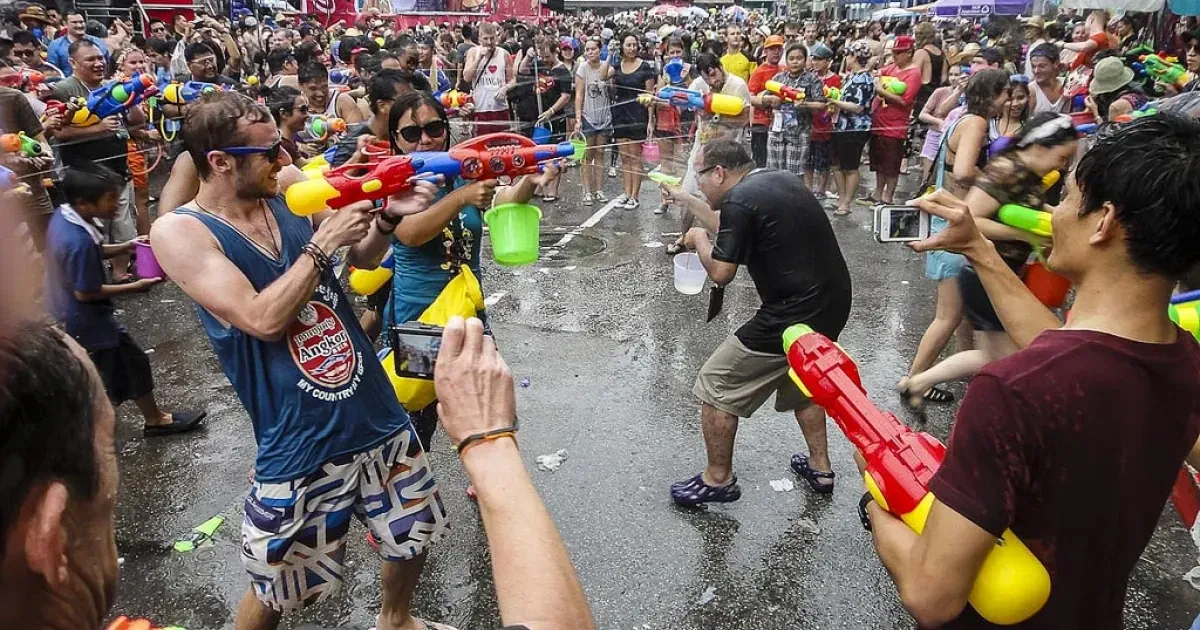The vibrant and spirited festival of Songkran, celebrated as the traditional New Year in Thailand, has commenced amidst scorching temperatures, raising concerns about the welfare of participants amid the record-breaking heat wave. Revelers across the nation joyously engage in the festivities, dousing each other with colorful water guns and buckets, creating a lively atmosphere that draws thousands of enthusiastic participants. This annual celebration, known as Songkran, spans three days officially but is informally extended for a week, allowing families to come together for joyous reunions.
Rooted in Buddhist traditions, Songkran initially served as a time for prayers for a bountiful rainy season to nurture crops. Rituals included cleansing Buddha images and washing the hands and feet of elders as a mark of respect. However, contemporary Songkran has evolved into a jubilant affair often associated with exuberant revelry, public intoxication, and unfortunately, incidents of misconduct such as sexual assault and increased traffic accidents, earning the extended holiday the moniker of the “seven dangerous days.”
While Songkran typically coincides with the hottest period of the year, this year’s unprecedented heat wave has sparked apprehension among authorities. The United Nations Children’s Fund (UNICEF) has issued warnings about the potentially life-threatening effects of the sweltering weather, particularly for vulnerable populations such as children and the elderly. Heat waves can have devastating consequences, exacerbating respiratory difficulties and posing significant health risks.
Benjamin Horton, director of the Earth Observatory of Singapore, underscores the multifaceted factors contributing to heat waves, including natural phenomena like El Niño, global temperature increases, and human-induced climate change. Particularly vulnerable are the less fortunate populations residing in Southeast Asian cities, where concrete structures intensify the heat and the lack of green spaces exacerbates the conditions.
The Mekong Delta region, encompassing several Southeast Asian countries, has experienced extreme heat, significantly surpassing average temperatures. The ramifications extend beyond discomfort, impacting crucial sectors like energy production. Hydropower generation, a vital energy source for many nations in the region, faces challenges due to reduced water availability amidst the scorching conditions.
Mitigating the adverse effects of heat waves necessitates urgent action, including reducing carbon emissions and implementing adaptive measures to safeguard communities. Singapore’s Horton emphasizes the importance of raising awareness about the dangers of extreme heat and establishing emergency response protocols to provide relief to affected individuals. In neighboring countries like the Philippines, proactive measures such as adjusting school schedules and promoting indoor activities aim to shield populations from the sweltering heat.
In essence, as Songkran festivities unfold against the backdrop of soaring temperatures, attention shifts to addressing the pressing challenges posed by climate change and ensuring the well-being of communities amidst the heat wave’s relentless grip.


















